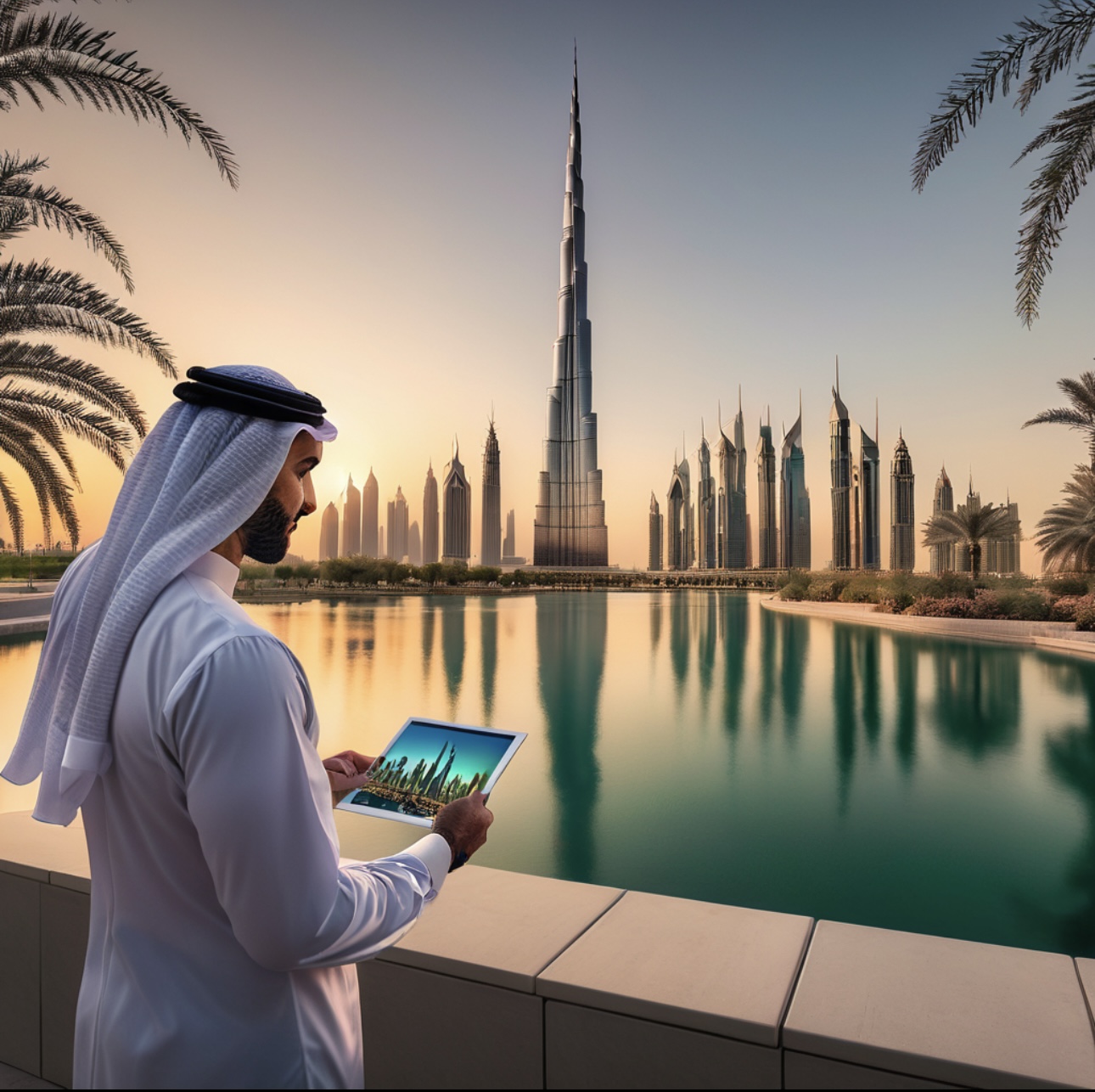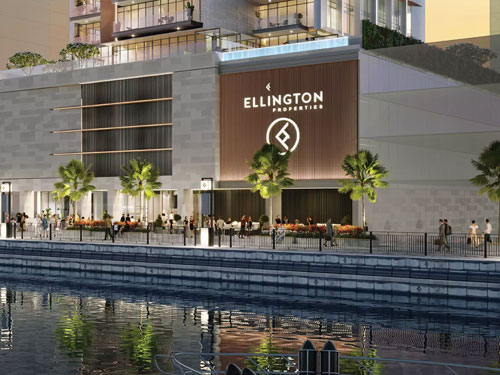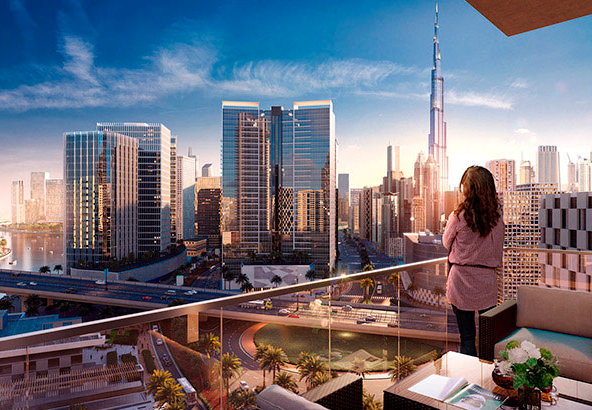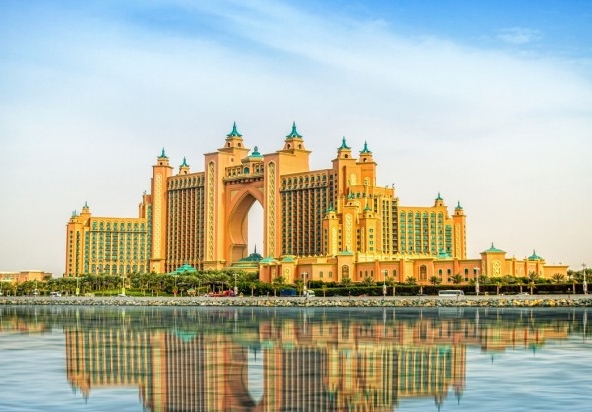The United Arab Emirates (UAE) has long been a magnet for investors worldwide, thanks to its robust economy, strategic location, and world-class infrastructure. Today, the UAE’s real estate market offers unprecedented opportunities, making now the ideal time to invest. With favorable government policies, a booming economy, and a range of high-yield investment options, the UAE stands out as a prime destination for property investment.
Table of Contents
Economic Stability and Growth
The UAE’s economic stability and attractiveness as an investment destination can be attributed to several strategic factors and initiatives implemented by the government:
- Diversification of Economy: Historically reliant on oil revenues, the UAE government recognized the need to diversify its economy to reduce dependency on oil. This diversification strategy aims to develop and promote sectors such as tourism, trade, real estate, manufacturing, finance, and logistics.
- Strategic Vision and Plans: The UAE has developed comprehensive long-term plans and visions to guide its economic growth. For instance, the UAE Vision 2021 and subsequent Vision 2030 outline goals for economic diversification, sustainability, and development across various sectors.
- Investment in Infrastructure: The UAE has heavily invested in infrastructure development, including transportation networks, ports, airports, and telecommunications. This infrastructure supports business activities and enhances the overall competitiveness of the economy.
- Business-Friendly Environment: The UAE has established free zones and special economic zones that offer attractive incentives and benefits for businesses, such as 100% foreign ownership, tax exemptions, and simplified administrative procedures. This encourages foreign investment and supports entrepreneurship.
- Political Stability and Governance: The UAE maintains a stable political environment, which is crucial for investor confidence. Clear regulatory frameworks, transparent governance, and a commitment to economic liberalization contribute to a favorable business climate.
- Fiscal Sustainability: Despite fluctuations in oil prices, the UAE has demonstrated fiscal discipline and prudent economic management. This includes efforts to diversify government revenues and maintain sustainable fiscal policies.
- Strategic Location: Situated at the crossroads of Europe, Asia, and Africa, the UAE benefits from its strategic geographic location, making it a hub for trade and commerce. This geographical advantage enhances its attractiveness as a regional and global business center.
- Investment in Human Capital: The UAE has prioritized education and workforce development to ensure a skilled and adaptable labor force. This investment supports the growth of knowledge-based industries and enhances the overall competitiveness of the economy.
- Resilience Against Global Economic Fluctuations: By diversifying its economy and implementing robust economic policies, the UAE has built resilience against global economic fluctuations, such as changes in oil prices or global market downturns.
Overall, these factors collectively contribute to the UAE’s reputation as an economically stable and attractive investment destination, fostering sustainable growth and prosperity in the region.
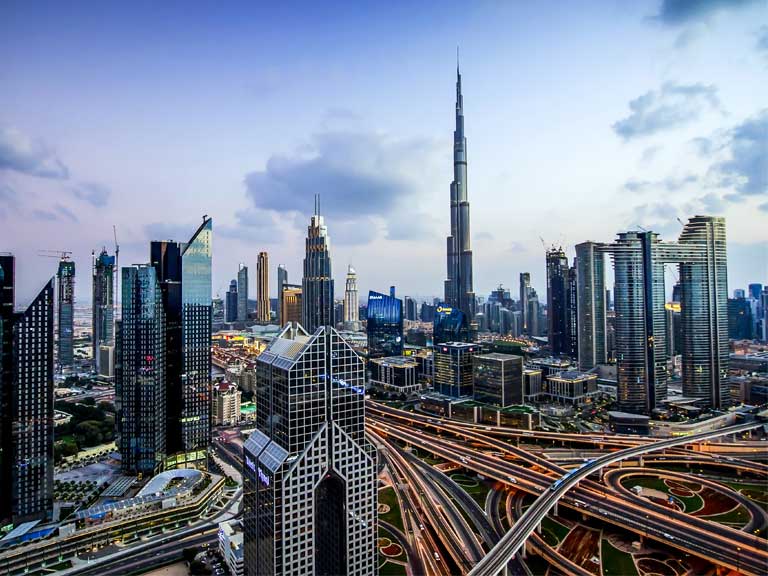
Government Initiatives and Reforms
The UAE government has implemented several initiatives and reforms aimed at stimulating the real estate market and making the country more attractive to investors. Here’s a more detailed explanation of each:
- Long-term Visas and Residency Options:
- The UAE introduced long-term residency visas to attract investors, property owners, entrepreneurs, and specialized talents. These visas provide stability and encourage individuals to establish long-term roots in the UAE. There are generally two types of long-term visas:
- Investor Visa: This is granted to investors who meet certain criteria, such as property investment or business investment.
- Property Owner Visa: This is available to property owners who meet specific investment thresholds.
- These visas are typically issued for durations of five or ten years, depending on the investment amount and property value, and can be renewed.
- The UAE introduced long-term residency visas to attract investors, property owners, entrepreneurs, and specialized talents. These visas provide stability and encourage individuals to establish long-term roots in the UAE. There are generally two types of long-term visas:
- Ease of Property Ownership:
- Expatriates can now own property in designated freehold areas across the UAE. Previously, ownership was restricted to designated leasehold areas. This change has significantly broadened the market for property investment, as expatriates now have more options to invest in residential and commercial real estate.
- The expansion of freehold areas has boosted demand for property, driving up property values in these areas and attracting more foreign investment.
- Free Zones:
- The UAE has established numerous free zones throughout the country, each specializing in different industries such as technology, media, finance, and logistics.
- Free zones offer attractive benefits to businesses and investors, including:
- 100% Foreign Ownership: Companies can be fully owned by foreign investors, which is not typically allowed in the mainland UAE where local partnership is often required.
- Tax Exemptions: No corporate or income taxes for a specified period, often up to 50 years, with the possibility of renewal.
- Repatriation of Profits: Investors can transfer profits and capital freely outside of the UAE.
- Simplified Regulations: Free zones generally have streamlined administrative processes and fewer bureaucratic hurdles, making it easier to establish and operate businesses.
- These benefits have made free zones attractive hubs for foreign direct investment (FDI) and have driven significant growth in commercial real estate within these zones.
- Impact on Real Estate Market:
- Collectively, these initiatives and reforms have had a profound impact on the UAE’s real estate market. They have boosted investor confidence, increased demand for property, and contributed to the overall economic diversification strategy of the UAE.
- The real estate sector, particularly in freehold and free zone areas, has seen robust growth in property prices and transaction volumes. This growth has extended beyond traditional residential and commercial sectors to include mixed-use developments, hospitality, and industrial real estate.
In summary, the UAE’s government initiatives and reforms in the real estate sector, including long-term visas, ease of property ownership for expatriates, and establishment of free zones, have collectively enhanced the country’s attractiveness as a destination for international investors, fostering economic growth and diversification.

Booming Real Estate Market
The real estate market in the UAE is indeed experiencing significant growth, fueled by several key factors that appeal to both local and international investors. Here’s a detailed explanation of what contributes to the booming real estate market in the UAE:
- Demand Drivers:
- Population Growth: The UAE has been experiencing steady population growth due to factors such as immigration, expatriate workforce, and natural population increase. This growth drives demand for residential properties.
- Economic Activity: The UAE’s strong economic performance, diversification efforts, and business-friendly environment attract professionals and businesses, increasing demand for commercial spaces and office buildings.
- Tourism: The UAE is a major tourist destination, with cities like Dubai and Abu Dhabi attracting millions of visitors annually. This boosts demand for hospitality and short-term rental properties.
- Investment Appeal:
- High Rental Yields: The UAE offers attractive rental yields compared to many other global markets. This is particularly true in areas with high demand and limited supply, such as prime residential and commercial districts.
- Capital Appreciation: Property values in key locations, especially in freehold areas and prime developments, have shown significant appreciation over the years, making real estate investment lucrative.
- Diverse Investment Options: Investors have a wide range of options, from luxury apartments and villas to commercial offices, retail spaces, and even industrial properties. This diversity allows investors to tailor their investments based on their risk appetite and investment goals.
- Government Initiatives and Regulations:
- Investor-Friendly Policies: Initiatives such as long-term visas for investors, ease of property ownership for expatriates, and establishment of free zones with favorable business conditions have boosted investor confidence and attracted capital into the real estate sector.
- Infrastructure Development: Continuous investment in infrastructure, including transportation networks, airports, and cultural attractions, enhances the appeal of real estate investments by improving connectivity and livability.
- Regional and Global Connectivity:
- Strategic Location: The UAE’s strategic geographic location as a gateway between East and West facilitates trade, tourism, and business activities, attracting international investors seeking a foothold in the Middle East and North Africa (MENA) region.
- Global Connectivity: Modern air and sea ports, along with advanced telecommunications infrastructure, support international business and make the UAE an accessible hub for global investors and multinational corporations.
- Market Dynamics and Trends:
- Off-Plan Developments: Developers in the UAE often launch off-plan projects, allowing investors to purchase properties before completion at competitive prices, potentially yielding higher returns upon completion.
- Luxury Segment: The UAE is known for its luxury real estate market, catering to high-net-worth individuals seeking premium residences and exclusive lifestyle offerings.
- Sustainability and Innovation: Increasing emphasis on sustainability and smart city initiatives in new developments aligns with global trends and attracts environmentally-conscious investors.
In conclusion, the UAE’s real estate market continues to thrive due to robust demand drivers, attractive investment opportunities, supportive government policies, strategic location, and a diverse range of investment options. These factors collectively contribute to the booming growth and resilience of the UAE’s real estate sector amid global economic fluctuations.
High Demand and Rental Yields
The high demand for residential and commercial properties in Dubai and Abu Dhabi, coupled with attractive rental yields, makes these cities prime locations for property investment. Here’s a detailed explanation of the demand and rental yields in both residential and commercial sectors:
Residential Properties
- Luxury Residential Areas:
- Downtown Dubai: Known for iconic landmarks like the Burj Khalifa and Dubai Mall, Downtown Dubai offers high-end apartments and penthouses with stunning views and luxurious amenities. It is a hub for luxury living, attracting affluent individuals and families both for residence and investment purposes.
- Palm Jumeirah: A man-made island renowned for its exclusive villas and waterfront apartments, Palm Jumeirah offers a lifestyle synonymous with luxury and privacy. Properties here command premium prices and high rental rates due to their unique location and upscale amenities.
- Yas Island (Abu Dhabi): Yas Island is a vibrant mixed-use development featuring residential communities, theme parks, entertainment venues, and a marina. The island’s strategic location and extensive leisure offerings make it a desirable residential destination with strong rental demand.
- Demand Dynamics:
- Wealthy Expatriate Population: Dubai and Abu Dhabi attract a diverse expatriate community, including high-net-worth individuals, senior executives, and professionals working in various industries such as finance, technology, and hospitality. This demographic drives demand for high-quality residential properties.
- Tourism and Hospitality: Both cities are major tourist destinations, with visitors often preferring short-term rentals in prime residential areas. This contributes to rental demand throughout the year, especially during peak tourist seasons.
- Stable Rental Market: Despite fluctuations in the global economy, Dubai and Abu Dhabi have maintained a relatively stable rental market, with rental yields remaining attractive compared to other global cities.
Commercial Properties
- Key Business Districts:
- Dubai International Financial Centre (DIFC): DIFC is a leading financial hub in the Middle East, home to multinational corporations, financial institutions, legal firms, and consulting companies. The demand for office spaces in DIFC remains robust due to its regulatory environment, infrastructure, and proximity to major business centers.
- Abu Dhabi Global Market (ADGM): Located on Al Maryah Island, ADGM is Abu Dhabi’s international financial center offering a business-friendly environment with modern office spaces, legal frameworks, and regulatory support. It attracts financial services firms, professional services providers, and tech companies.
- Demand Drivers:
- Corporate Expansion: Both Dubai and Abu Dhabi continue to attract multinational corporations and startups looking to establish or expand their regional presence. This drives demand for office spaces in prime business districts.
- Strategic Location: The UAE’s strategic location between East and West enhances its appeal as a regional headquarters for businesses operating across the Middle East, Africa, and South Asia (MEASA) region.
- Infrastructure Development: Ongoing infrastructure projects, such as transportation networks and smart city initiatives, further support business activities and contribute to the attractiveness of commercial real estate investments.
In conclusion, the high demand for residential properties in luxury areas of Dubai and Abu Dhabi, coupled with strong rental yields, reflects the cities’ appeal to affluent residents and investors. Similarly, the robust demand for office spaces in key business districts underscores the UAE’s role as a regional hub for commerce and finance. These factors collectively contribute to the attractiveness of property investment in both residential and commercial sectors in Dubai and Abu Dhabi.

Off-plan Developments
Investing in off-plan properties in the UAE has become increasingly popular due to several key benefits that appeal to investors seeking both capital appreciation and long-term returns. Here’s a detailed explanation of the advantages of off-plan investments:
Benefits of Off-plan Investments
- Lower Purchase Prices:
- Off-plan properties are typically sold at prices below the prevailing market rates for completed properties in the same area. Developers offer these lower prices as incentives to buyers who purchase units during the construction phase.
- This initial discount allows investors to acquire properties at a more affordable cost compared to buying a ready property, potentially resulting in immediate equity upon completion as property values typically increase over time.
- Flexible Payment Plans:
- Developers of off-plan projects often provide flexible and structured payment plans. These plans typically allow investors to pay in installments over the construction period or even beyond completion, depending on the developer’s terms.
- Such flexibility can ease the financial burden on investors, making it feasible to invest in real estate without having to commit the full purchase price upfront.
- Capital Appreciation:
- One of the most attractive aspects of off-plan investments is the potential for significant capital appreciation. As the development progresses and approaches completion, the market value of the property tends to increase.
- Investors can benefit from capital appreciation even before taking possession of the property, as the market value often rises due to increasing demand, improved infrastructure, and overall market conditions.
- Choice of Units and Customization:
- Buying off-plan allows investors to choose from a wider range of units, typically at different price points and configurations (e.g., size, layout, view). This flexibility enables investors to select units that best fit their investment strategy and budget.
- Some developers also allow customization options during the early stages of construction, such as choosing finishes and materials, which can add further value to the property.
- Early Investment Advantage:
- Investing early in off-plan properties can provide investors with an advantage in competitive markets. They secure a property at a lower price and potentially benefit from first-mover advantages as the development gains popularity and value over time.
- Potential Rental Income:
- Once completed, off-plan properties can generate rental income for investors. The strategic location and quality of the development often attract tenants seeking modern amenities and convenient living or working spaces.
Considerations and Risks
While off-plan investments offer compelling benefits, investors should also consider potential risks such as delays in construction, changes in market conditions, and the reputation and track record of the developer. It’s essential to conduct thorough due diligence and work with reputable agents and legal advisors to mitigate risks and maximize returns.
In conclusion, off-plan investments in the UAE provide investors with opportunities for lower purchase prices, flexible payment plans, potential capital appreciation, and the ability to customize their investment. These factors contribute to the attractiveness of off-plan properties as a viable investment strategy in the dynamic real estate market of the UAE.
Strategic Location and Infrastructure
The UAE’s strategic location and its robust infrastructure play crucial roles in positioning it as a premier hub for business, travel, and investment in the region. Here’s a detailed explanation of how these factors contribute to the UAE’s attractiveness:
Strategic Location
- Global Connectivity:
- The UAE is strategically located at the crossroads of Europe, Asia, and Africa, making it a central hub for international trade, commerce, and travel. This geographic advantage facilitates easier access to major markets and enhances connectivity between different regions of the world.
- Major cities like Dubai and Abu Dhabi serve as important transit points for air travel, with numerous direct flights connecting them to cities worldwide. This connectivity supports business activities and facilitates the movement of goods, services, and people.
- Regional Headquarters:
- Many multinational corporations choose to establish their regional headquarters or offices in the UAE due to its strategic location. This allows companies to efficiently manage operations across multiple continents and time zones from a central location.
- Tourism and Hospitality:
- The UAE’s strategic location and accessibility attract millions of tourists annually. Cities like Dubai and Abu Dhabi are renowned for their luxury hotels, shopping malls, cultural attractions, and entertainment venues, making them popular destinations for leisure and business travelers alike.
World-Class Infrastructure
- Airports:
- The UAE boasts some of the world’s busiest and most advanced airports, including Dubai International Airport (DXB) and Abu Dhabi International Airport (AUH). These airports serve as major aviation hubs connecting passengers and cargo globally.
- Dubai’s DXB consistently ranks among the top airports worldwide for international passenger traffic, facilitating seamless travel and enhancing the UAE’s status as a global transit hub.
- Seaports:
- The UAE has modern and efficient seaports, including Jebel Ali Port in Dubai and Khalifa Port in Abu Dhabi. Jebel Ali Port is one of the largest container ports globally and a vital hub for maritime trade in the Middle East.
- These ports play a crucial role in facilitating the import and export of goods, supporting the UAE’s trade relations with countries across Asia, Europe, and Africa.
- Road and Transport Network:
- The UAE has invested significantly in a comprehensive road network that connects its cities and industrial zones. Highways like Sheikh Zayed Road in Dubai and Sheikh Khalifa Bin Zayed Road in Abu Dhabi facilitate efficient transportation of goods and commuters.
- Public transportation options, including metro systems in Dubai and Abu Dhabi, further enhance connectivity within urban areas and reduce dependency on private vehicles.
- Telecommunications and Technology:
- The UAE is at the forefront of telecommunications infrastructure development, with widespread access to high-speed internet and advanced telecommunications services. This supports business operations, digital connectivity, and innovation in sectors such as finance, technology, and e-commerce.
Impact on Investment Attractiveness
The UAE’s strategic location and world-class infrastructure combine to create an environment conducive to business growth, trade expansion, and investment across various sectors. Investors are drawn to the UAE for its efficient logistics, connectivity advantages, and supportive infrastructure that facilitate operational efficiency and market access.
In conclusion, the UAE’s strategic geographic location and sophisticated infrastructure are integral to its status as a global business and travel hub. These factors underpin the country’s attractiveness to investors seeking opportunities in diverse sectors, driving economic growth and development in the region.
Tourism and Hospitality
Tourism is indeed a cornerstone of the UAE’s economy, driving significant demand for hospitality services and contributing to the real estate market, particularly in luxury and high-demand areas. Here’s a detailed explanation of how tourism and hospitality impact the UAE’s real estate sector:
Iconic Landmarks
- Tourist Attractions:
- The UAE boasts world-renowned landmarks that attract millions of visitors annually. The Burj Khalifa in Dubai, the tallest building in the world, and the Palm Jumeirah, an iconic man-made island, are prime examples. These landmarks not only enhance the country’s global appeal but also increase property values in nearby areas due to their prestige and attractiveness.
- Cultural and Historical Sites:
- The Sheikh Zayed Grand Mosque in Abu Dhabi is another significant attraction known for its architectural splendor and cultural significance. It draws tourists interested in exploring the UAE’s rich heritage and Islamic culture, further supporting tourism-related businesses and real estate developments in Abu Dhabi.
Luxury Resorts and Hotels
- Luxury Hospitality Sector:
- The UAE is renowned for its opulent hotels and resorts that cater to affluent tourists and business travelers. Properties like the Burj Al Arab in Dubai and Emirates Palace in Abu Dhabi are icons of luxury hospitality, offering unparalleled service and amenities.
- These luxury establishments not only contribute to the tourism sector but also create demand for high-end residential properties nearby. Investors often seek properties in proximity to such hotels, anticipating rental income from tourists and executives seeking short-term accommodations.
- Serviced Apartments and Short-Term Rentals:
- The demand for serviced apartments and vacation rentals in the UAE has grown significantly, driven by tourists seeking more personalized and flexible accommodation options compared to traditional hotels.
- Areas near tourist attractions and business hubs like Dubai Marina and Downtown Dubai have seen a rise in the development of serviced apartments, catering to the needs of both leisure and corporate travelers.
Economic Impact and Investment Opportunities
- Tourism’s Economic Contribution:
- Tourism plays a crucial role in the UAE’s economy, contributing to GDP growth, job creation, and revenue generation. The hospitality sector, including hotels, restaurants, and entertainment venues, benefits directly from tourist spending, bolstering local economies and supporting related industries.
- Investment Opportunities:
- The robust tourism sector creates lucrative investment opportunities in the UAE’s real estate market, particularly in areas with high tourist footfall and demand for hospitality services.
- Investors can capitalize on the steady demand for properties near tourist attractions, luxury hotels, and business districts, aiming for rental income and potential capital appreciation.
Sustainability and Future Outlook
- Sustainable Tourism Initiatives:
- The UAE government is increasingly focusing on sustainable tourism initiatives to preserve natural resources and enhance visitor experiences. This includes eco-friendly developments and cultural preservation efforts that align with global tourism trends.
- Future Growth Prospects:
- Despite global economic fluctuations, the UAE remains committed to expanding its tourism sector through strategic investments in infrastructure, events, and promotions. Future growth prospects are bolstered by initiatives like Expo 2020 Dubai, which showcase the country’s capabilities and attract a diverse international audience.
In conclusion, tourism and hospitality are pivotal drivers of the UAE’s real estate market, influencing property values, rental yields, and investment opportunities. The country’s iconic landmarks, luxury accommodations, and strategic initiatives continue to position it as a global tourism hub with enduring appeal for investors seeking growth and stability in the sector.
Favorable Market Conditions
The current market conditions in the UAE present favorable opportunities for property investment, appealing to both local and international investors. Here’s an in-depth explanation of why the UAE market is considered favorable for property investment:
Competitive Prices
- Price Stability and Affordability:
- Over recent years, the UAE real estate market has shown stability in property prices, making it an attractive destination for investors seeking relatively stable investments compared to more volatile global markets.
- While certain segments like luxury properties in prime locations may command premium prices, overall, there are opportunities to find competitively priced properties across various categories, from residential apartments to commercial spaces.
- Value Proposition:
- Property prices in the UAE often offer good value propositions compared to other global cities with similar infrastructural and lifestyle amenities. Investors can find properties that align with their budget and investment goals, whether seeking rental income or capital appreciation.
Attractive Financing Options
- Low Interest Rates:
- The UAE has historically offered competitive interest rates on mortgages, which encourages property purchases and investment. Low borrowing costs make financing more accessible and affordable for investors looking to leverage their investments.
- Developer Payment Plans:
- Developers in the UAE frequently offer flexible payment plans for off-plan properties, allowing investors to spread payments over the construction period or beyond completion. This flexibility minimizes upfront financial strain and facilitates easier entry into the market.
Growing Economy
- Diversified Economic Base:
- The UAE has successfully diversified its economy beyond oil and gas, focusing on sectors such as tourism, trade, finance, logistics, and technology. This economic diversification supports sustainable growth and reduces dependency on volatile commodity markets.
- Stable Political Environment:
- The UAE maintains a stable political and regulatory environment, which is crucial for investor confidence and business stability. Clear legal frameworks and transparent governance contribute to a predictable business environment.
Long-Term Growth Potential
- Infrastructure Development:
- Ongoing investments in infrastructure, including transportation networks, ports, airports, and smart city initiatives, enhance the UAE’s attractiveness as a business and residential destination. These developments support economic growth and property demand.
- Strategic Initiatives:
- Government initiatives such as long-term visas for investors, ease of property ownership regulations for expatriates, and establishment of free zones continue to stimulate foreign investment and drive demand in the real estate sector.
Market Resilience
- Resilience Against Global Fluctuations:
- Despite global economic uncertainties, the UAE real estate market has demonstrated resilience due to diversified demand drivers, strategic location, and government initiatives aimed at maintaining market stability.
- Demand for Rental Properties:
- The UAE’s growing population, influx of expatriates, and robust tourism sector contribute to sustained demand for rental properties. This demand supports rental yields and provides steady income streams for investors.
In conclusion, the UAE offers favorable market conditions for property investment characterized by competitive prices, attractive financing options, a growing economy, and long-term growth potential. These factors collectively position the UAE as a compelling destination for investors seeking stability, profitability, and diversification in their investment portfolios within the dynamic Middle Eastern market.
